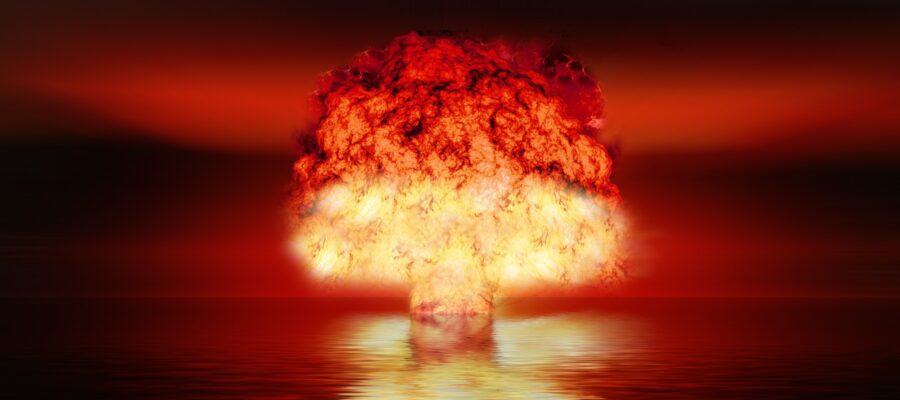Content
In the event of a nuclear attack, it will not be safe to venture out in search of food. You should stay indoors for at least 48 hours and preferably longer.
Preparing to survive a Nuclear Attack
A nuclear attack by an enemy nation does not come unexpectedly. Such an attack would be preceded by a significant deterioration in diplomatic relations over a period of time. A conflict between two nations that is not quickly ended with so-called conventional weapons could escalate into a limited, then full-scale nuclear war, with several attacks likely to follow.
Food Reserve
Build up your reserve gradually. Each time you go to the grocery store, pick up an extra item or two for your food supply, selecting from the list below, which can last for years:
- rice,
- wheat,
- beans,
- sugar,
- honey,
- oats,
- powdered milk,
- vegetables and dried fruits,
- pasta.
Your objective is to build up a reserve for several months and to be able to hold on in case the food stores run out of supplies.
Water reserve
Keep water bottles (even empty ones, which can be filled at the last moment).
To purify water in case of an attack, keep basic household bleach and potassium iodide.
Survival Kit
Prepare a survival kit.
- lamp,
- radio,
- paper road maps
- batteries and solar charger,
- first aid kit (with a reserve of your possible medicines)
- cling film (to put on serious burns)
- whistle
- toilet paper,
- games and books for the children…
Protection of electrical appliances
Place radios and flashlights in an airtight metal box to protect them from electromagnetic impulses.
The metal shield should completely surround the protected object and preferably be in contact with the ground. In order to create a Faraday cage, the objects to be protected must not be in contact with the metal of the box.
Tools
In order to further isolate yourself, the following tools may be useful:
- dust masks.
- plastic sheeting and duct tape.
- garbage bags.
- a wrench and pliers to turn off the water and gas.
Surviving a nuclear attack
If you are near the site of the explosion (or epicenter), your chances of survival are zero, unless you are in a shelter that provides very good protection from the blast, heat and explosion. In any case, never look directly at the fireball under any pretext of losing your sight.
At a distance of about ten kilometers, you can get third degree burns. Flammable materials (nylon, oil, petroleum, gas) will ignite when in contact with the heat. Wind gusts will peak at about 1000 km/h and will blow everything in their path.
In a shelter
If you are in a shelter with your survival kit, wait. If not, run to the nearest building, look for a cellar… In any case, stay away from the windows. You should plan to spend about 48 hours there. Wait and wait for a message from the authorities.
Outside
Outside, lie down, protect your head and wait 1 minute until the breath has passed. Keep your mouth open so that your eardrums do not burst under the pressure.
Take off your clothes (this can reduce the radioactivity on you by 90%). If possible, put them in a sealed bag to get rid of them.
Do not scratch yourself. Do not touch yourself. If you can’t shower, gently wipe off any parts of your body that were not covered. If you can shower. Gently wash your body and hair with soap and warm water. Blow your nose gently, wipe your eyelids with a clean cloth. Translated with www.DeepL.com/Translator (free version)
